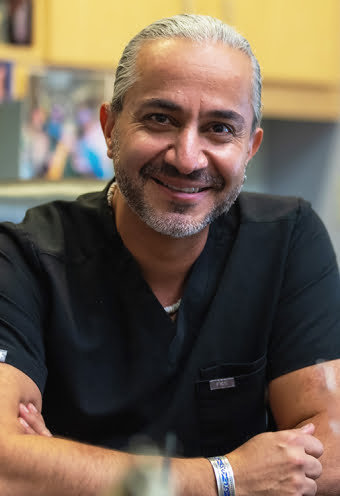
“If you’re looking to learn as much as you can about a dental exam, you will love this guide.”
— Dr. Reza Khazaie, DDS, Prosthodontist
The Complete Guide to a Dental Exam
A dental exam is a preventative health measure performed by a dentist that focuses on oral health and is critically important to your overall health. Dental exams are an essential part of monitoring your oral matters and helping to improve your overall health.
At Willow Pass Dental Care, our professional staff of dentists and hygienists provide you and your family with the care you and your teeth deserve.
While I will cover all aspects of a dental exam in this guide, I hope you will see the value such an exam can be for your overall health.
What is a dental exam?
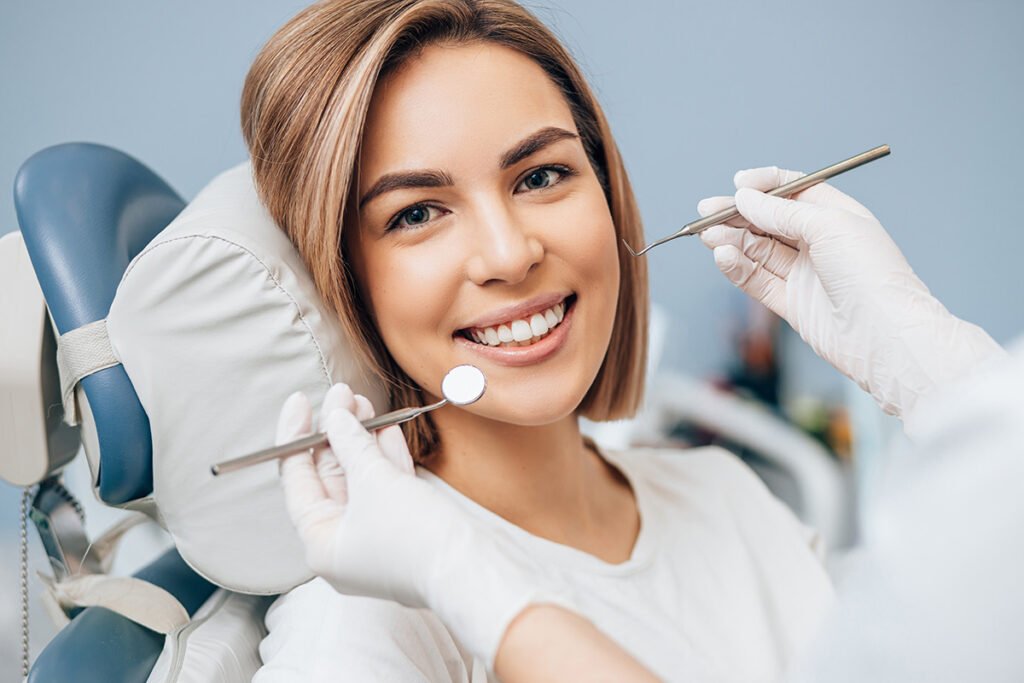
How we clean teeth
A dental exam is a preventive health measure performed by a dentist that focuses on oral health and is critically important to your overall health. Most dental professionals agree that seeing a dentist at least twice a year helps prevent serious oral health issues and other medical conditions. In addition, your oral health provides clues about your health in general, and when you have oral health issues, this can lead to serious health problems in other parts of the body. Therefore, dental exams are an essential part of monitoring oral matters and helping to improve your health overall.
Dental exams are performed by a dentist who has specialized knowledge in the health and care of the mouth, including the jaw, teeth, and oral tissue. Dental teeth cleaning is also a part of a dental exam and is usually performed by a dental hygienist. A dental hygienist is a dental professional trained to clean teeth, spot areas of concern, and inform patients of proper oral hygiene techniques.
A dentist can identify any issues through a routine dental exam, including signs of gum disease, cavities, and even oral cancers. These exams can help to prevent issues from forming or growing in severity. Waiting until you are in pain to see the dentist can lead to needing invasive dental procedures. A routine dental exam can lead to early diagnosis and eliminate the need for more complex procedures.
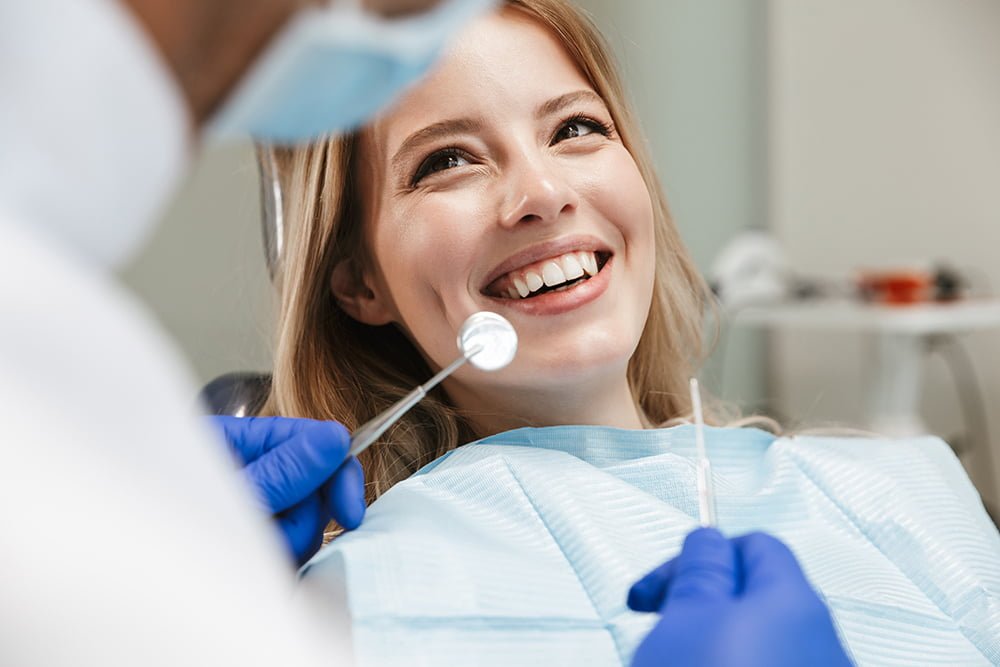

How much does a dental exam cost?
The out-of-pocket costs for each patient will vary based on insurance and the treatment required. Those with comprehensive dental insurance may see either no bill at all or a little copay.
While out-of-pocket costs can vary, our dental exam prices are typically between $50 to $300, with most prices falling towards the lower end of between $70 to $125. With dental insurance, the out-of-pocket cost for a dental checkup can be between $0 to $50.
Why do I need a dental exam?
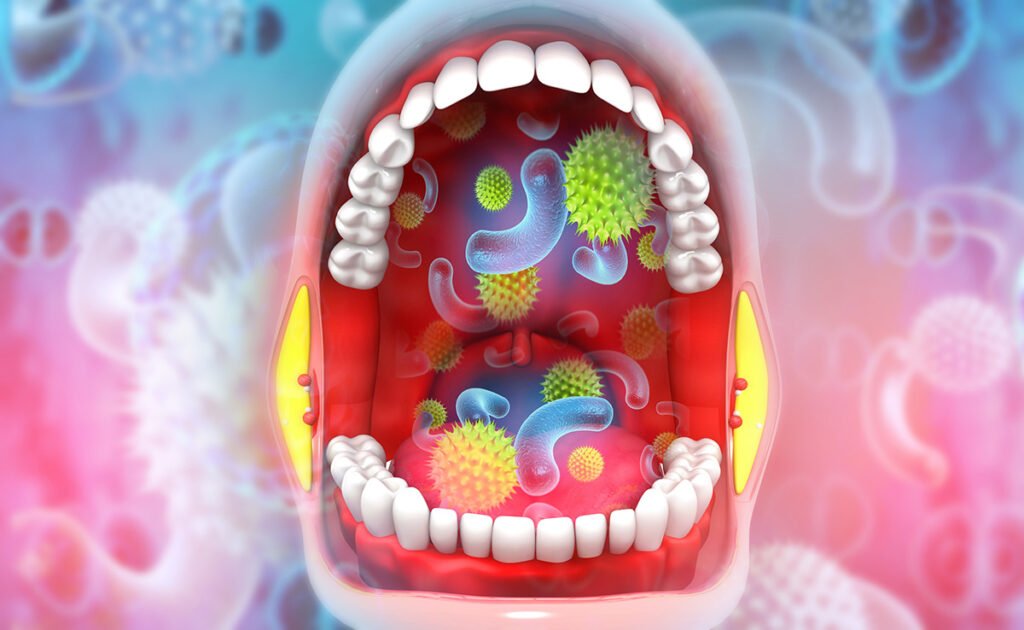
Your mouth is an entryway into your respiratory and digestive tracts. As a result, the mouth is teeming with bacteria. While most bacteria are harmless, some can cause issues within the mouth and throughout other body systems. Dental exams help spot the effects of bacteria such as the accumulation of plaque, signs of gum disease, and tooth decay.
Severe gum disease such as periodontitis has been linked to other more severe conditions and diseases in the body such as:
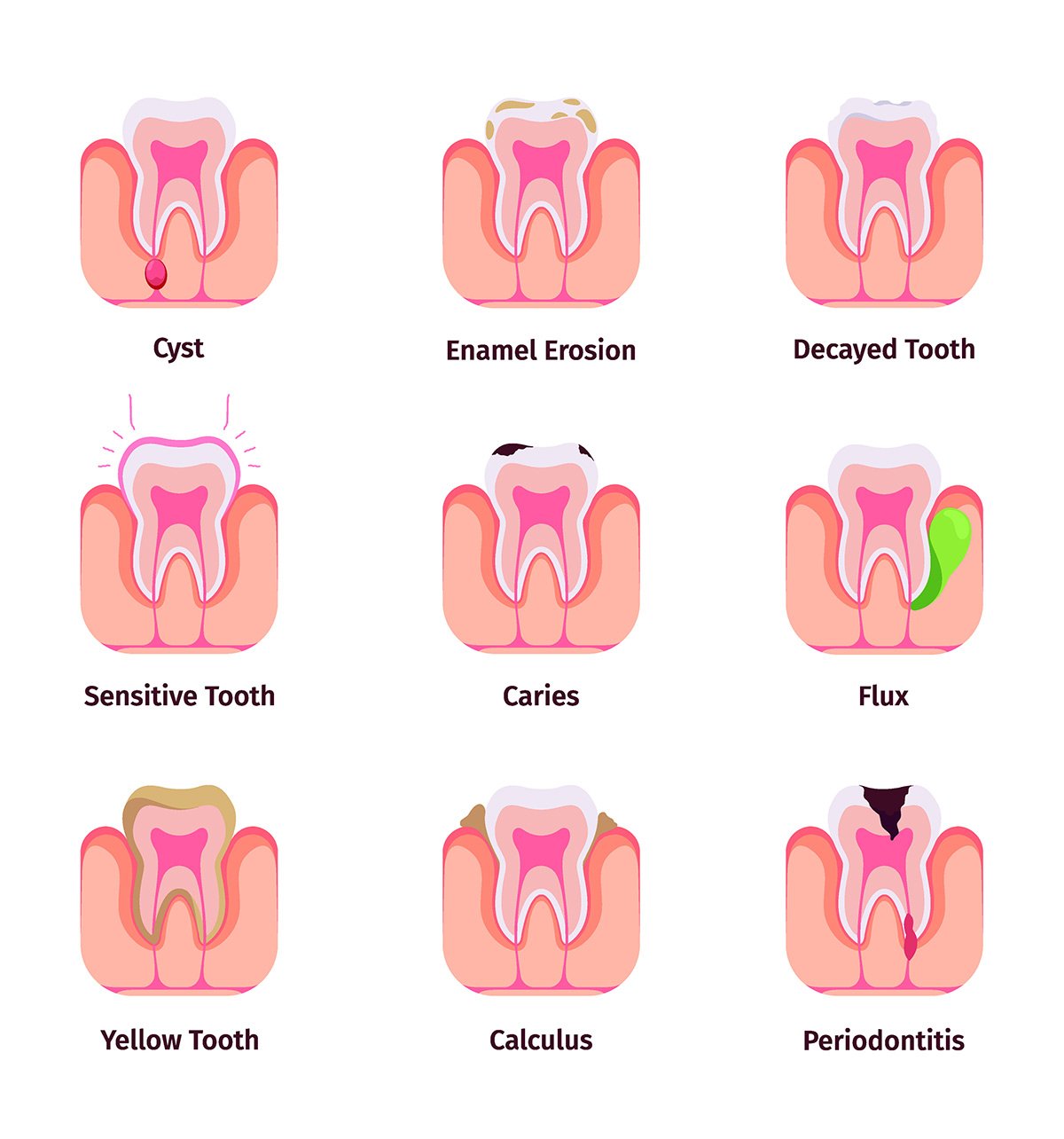
In addition to the mouth playing a role in the diseases and conditions listed above, other health issues affecting other parts of the body can play a role in oral health.
Some of these diseases are:
It is imperative to see the link between attending routine dental exams and your body’s whole health. In addition, attending your recommended dental exams can offer the following benefits:
A simple preventive measure like a dental exam can be life-saving.
It is crucial during a dental exam that you provide information on any chronic conditions you may have or medications you may be taking. This will help determine your dental treatment, including how often you need to come in for a dental exam.
What is the purpose of a dental examination?
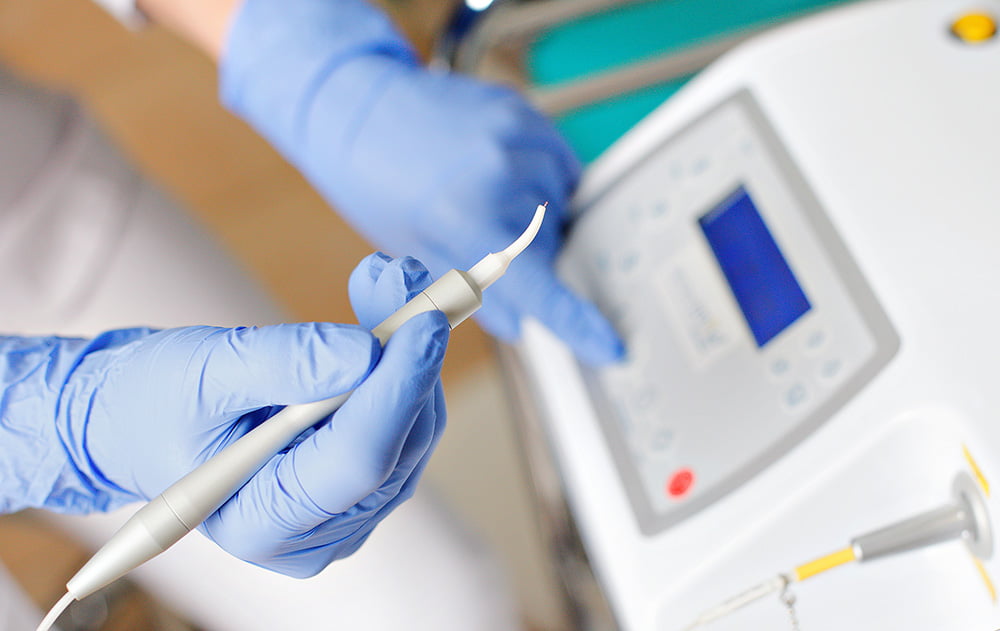
Dental exams are essential to overall health. The initial dental exam sets up a baseline for each patient’s unique dental health needs. Therefore, it is necessary to get examined regularly by a dentist. Through these exams, your dentist will be able to set up a treatment schedule that is tailored to your oral health needs.
Specifically, you will use the exam for the following.
4 Benefits of a Dental Exam
1. Overall oral health evaluation
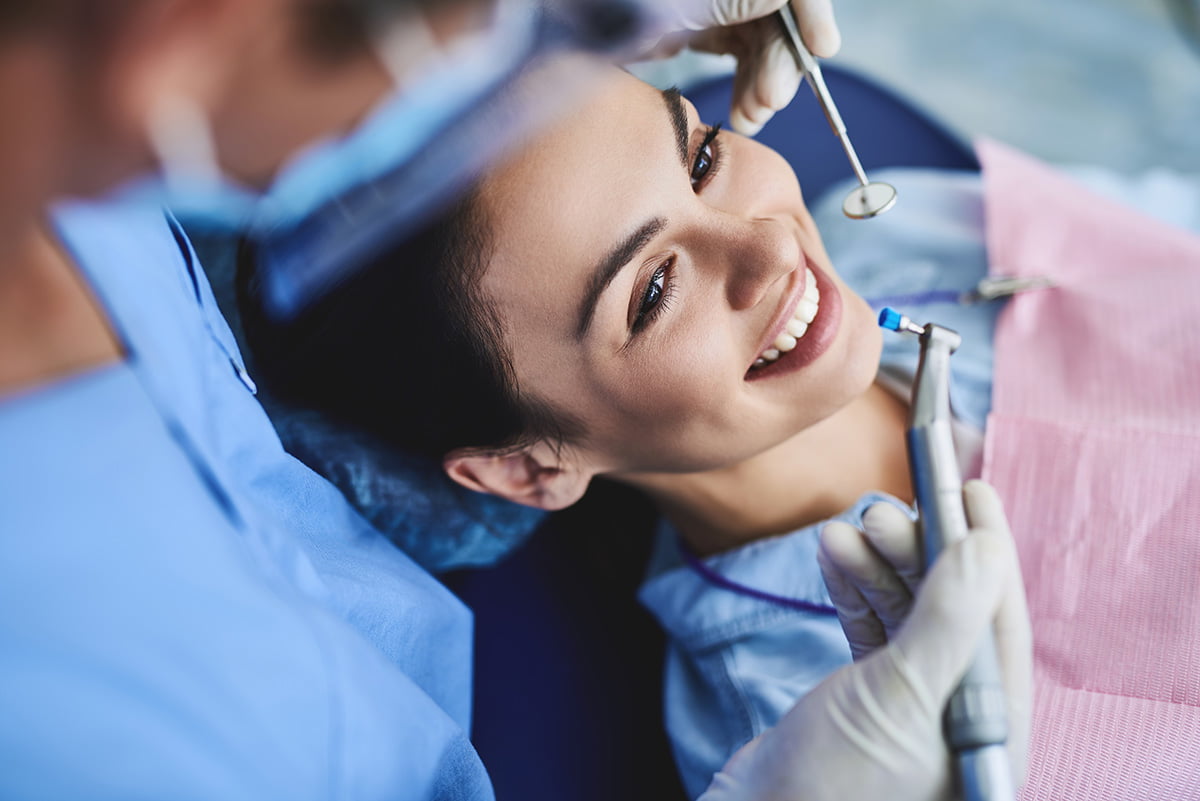
You will use the dental exam for the early detection of oral health issues. The dentist will be looking for signs of tooth decay, periodontal or gum disease, cavities, oral cancer, and problems with broken and chipped teeth. When these issues are caught early, the treatments are less invasive, and as a result, early detection and treatment will save money in the long run.
2. Comprehensive oral exam
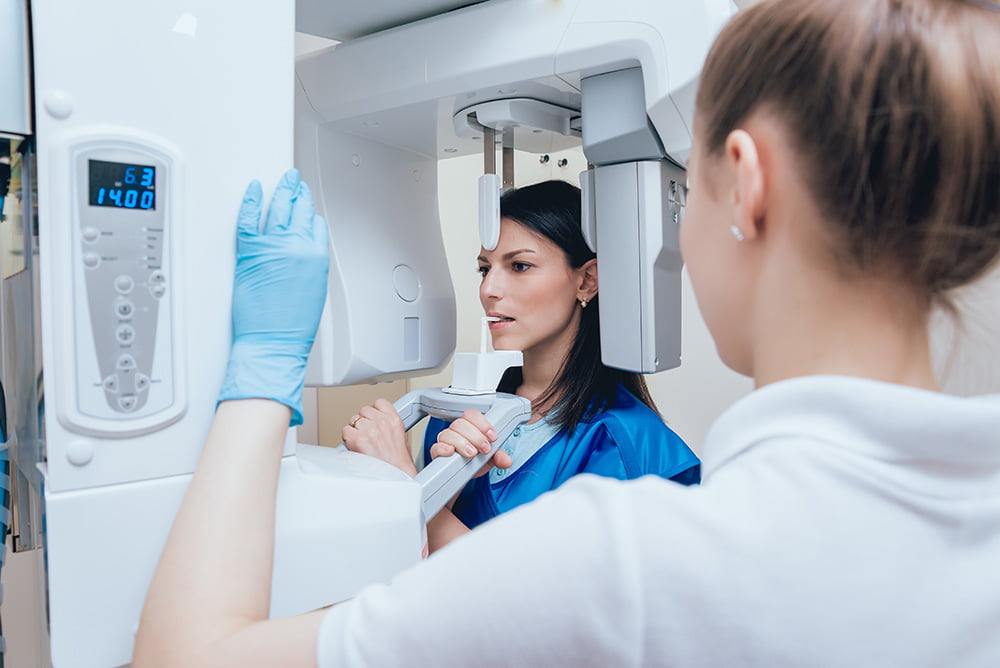
The initial exam is a comprehensive oral examination that consists of a complete assessment of all the hard and soft tissues in the oral cavity. This thorough assessment will document any issues that are uncovered during the exam.
The need and frequency of a comprehensive exam will depend on the overall oral health of the individual patient. On average, however, these thorough exams are done every 3 to 5 years.
3. Recall exam

In between the comprehensive oral examination, patients will be scheduled for recall exams to keep their oral health in check. These recall exams are done more frequently depending on individual patient needs.
Patients are encouraged to schedule recall appointments every 6 to 12 months in most cases.
The dentist will check overall gum and tooth health.
These appointments will usually also involve teeth cleaning.
Recall appointments are essential to ensuring oral health, overall health, and uncovering potential issues as quickly as possible. However, recall appointments do not have many of the more in-depth diagnostic assessments that are done during a comprehensive oral exam.
4. Provide education on proper oral home care
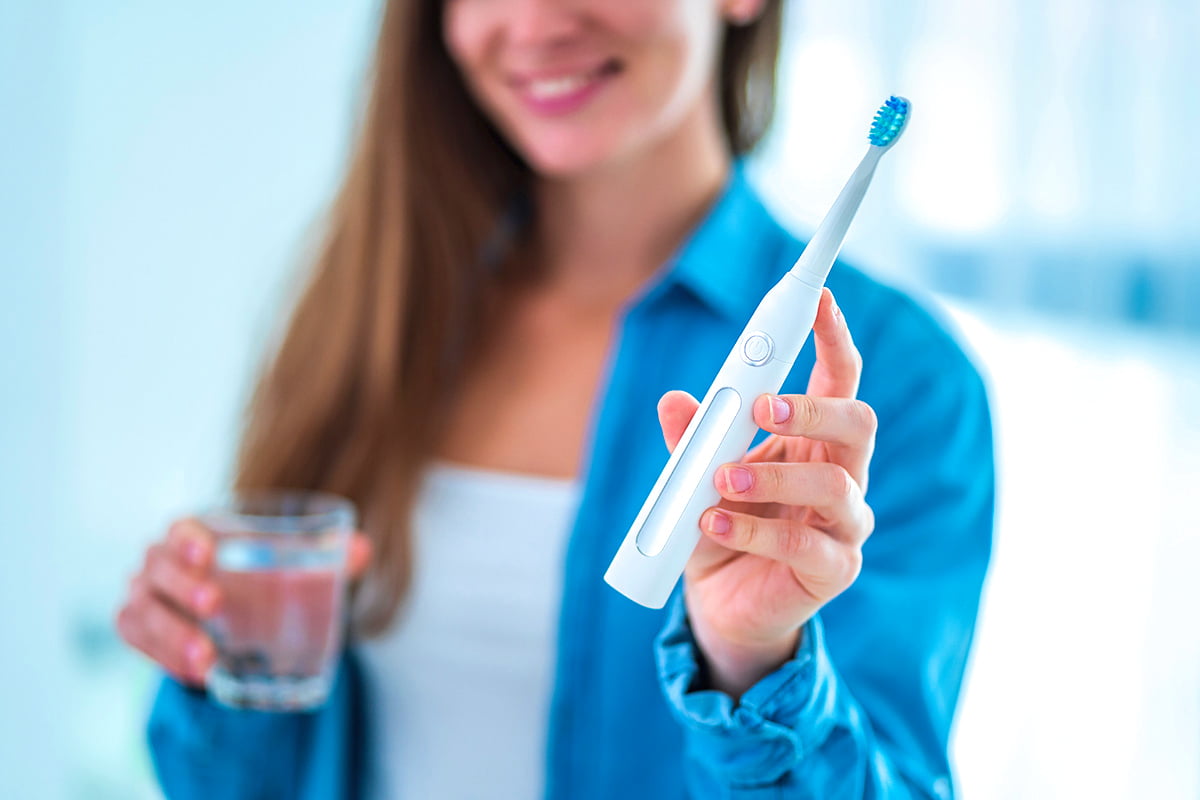
Additionally, a dental exam appointment is used to educate patients on the importance of home dental hygiene. Your at-home dental hygiene routine is perhaps the essential part of ensuring you maintain good oral health. Plaque and bacteria accumulate on our teeth and very quickly can spread throughout the body, causing possible damage to the circulatory and respiratory systems.
The oral cavity is the gateway to the rest of the body, and maintaining good oral health is an integral part of achieving a healthy body. Therefore, your dentist and dental hygienist will use your dental exam appointments to evaluate your at-home care and provide you with the knowledge to make improvements where necessary.
Patients will be educated on the best types of toothbrushes, toothpaste, and dental floss to use at these appointments. Proper techniques and routines will also be shared and demonstrated.
Overall, an excellent at-home dental hygiene routine will consist of the following:
- Brush your teeth at least twice a day for about two minutes.
- Use a recommended toothpaste containing fluoride.
- Floss between the teeth at least once a day.
- A healthy diet is essential, and you should keep sugar intake to a minimum.
- Finally, schedule and attend comprehensive dental exams and recall exams.
What happens during a dental exam?
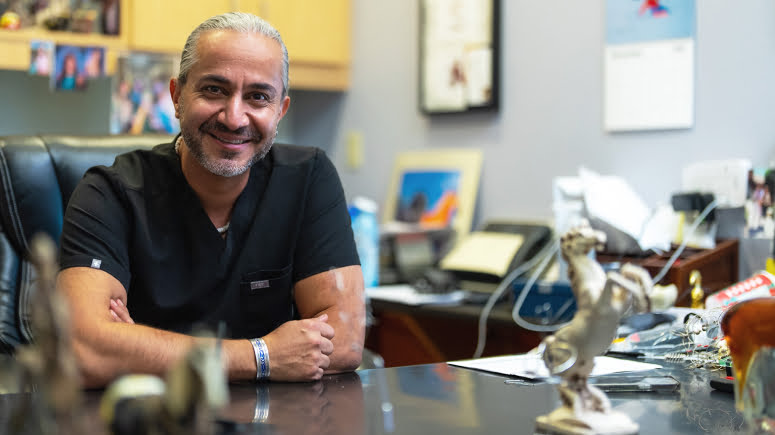
Your dentist will complete a routine dental exam. In most cases, a dental assistant and a dental hygienist will also be involved in your examination appointment. Your oral health needs are unique to your situation. Therefore, your teeth cleaning schedule, recall exam schedule, and comprehensive exam schedule will be recommended by your dentist based on your needs.
There are two types of dental exam appointments. The first is the comprehensive dental exam which offers a more thorough examination, and the second is a routine dental exam, also known as a recall dental exam. Here is what to expect at each of these types of appointments:
1. A Medical History Assessment will be completed.
A complete recording of your overall health is evaluated during this step.
You will be asked about medications you are taking, allergies you may have, family history, and medical conditions that may be present and affecting your health. Also, lifestyle issues such as alcohol usage and whether you smoke will be noted.
In addition, the dentist will ask about previous surgeries and dental procedures you may have had.
2. An examination of your teeth will be performed.
The dentist will be looking for broken or chipped teeth or crowns and possible tooth decay or cracked fillings.
3. An examination of your gums will be made.
The dentist will examine your gums to determine any possible gum recession.
A dental probe is used to measure pocket depths which helps to determine bone health, gum thickness, and bleeding.
4. A visual inspection of the gums is performed.
A visual inspection of the gums is done to uncover any soft tissue discolorations, swelling, or ulcerations.
5. An oral screening of the gums is completed.
An oral cancer screening is done to identify any problems quickly. Oral cancer is a severe condition that can spread rapidly. It is life-threatening if not detected early.
Oral cancer is treatable and often curable if detected early.
6. The dentist will perform an examination of the face, head, and neck.
An examination of the face, head, and neck is done to uncover any issues with asymmetry, swelling, or problems with the temporomandibular joint or TMJ.
7. The dentist will evaluate your bite.
The relationship of how the teeth come together, also known as your bite, is evaluated. This includes checking your teeth alignment and identifying any missing teeth or any trauma to existing teeth.
8. The dentist will obtain a full-mouth radiograph.
The dentist will do full mouth radiographs. This may include a panoramic series or computed tomography (CT) for more detailed internal images to diagnose existing issues and reveal potential problems. These may not be done at every visit but will be done at the first visit and then every 3 to 5 years, depending on the individual need.
9. A CT scan or 3D image may be taken by the dentist.
Depending on the specific issues found, the dentist may take a CT scan or 3D image when evaluating for implants, fractures, infections, bone defects, or tumors.
10. If needed, the dentist will obtain dental impressions.
Dental impressions may be taken to help with evaluation and treatment planning.
11. The dentist may want to obtain digital photography with case discussions.
The dentist will use digital photography to help with case discussions and provide a beginning point for the patient’s records.
12. The dentist will perform a dental cleaning.
The dentist will perform a dental cleaning (teeth cleaning) to rid your teeth of plaque that forms on the teeth and under the gums.
In many dental offices, ultrasonic cleaning equipment removes unwanted tartar buildup. After this is done, the teeth will be polished.
The data collected at a comprehensive dental exam is used to set a baseline for your overall dental health. The dentist will use this information to create a treatment plan for any issues that the dentist uncovered at the exam. In addition, the dentist will determine your recall appointments based on your overall oral health.
Depending on your dentist’s recommendations, you can expect to revisit a comprehensive dental exam once every 3 to 5 years.
Steps of a routine dental exam?
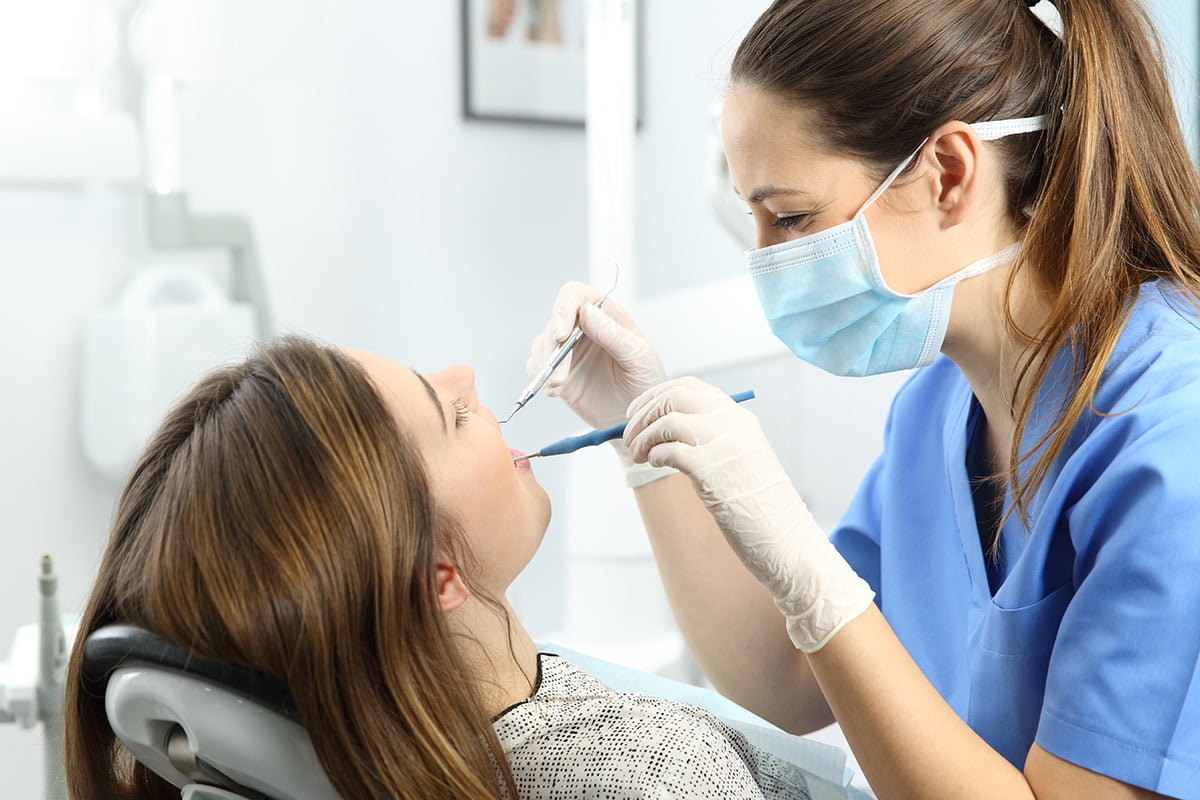
In between your comprehensive dental exams, recall exams will be a necessary part of your overall dental health. Your overall health and dental health will determine how frequently a recall exam will be required for you to achieve optimum oral health. While most people will need to come in twice a year, some will need to be seen more often.
Here is what to expect when you come in for a recall or routine dental exam:
1. A Medical Intake form will be completed.
The dentist will ask for any changes to your overall health. In addition, you should update the dental records with any new medications, allergies, or changes to smoking and drinking habits. This is also an excellent time to update the dentist about any dental concerns you may be experiencing.
2. A dental cleaning will be performed.
In most cases, the dentist will perform a dental cleaning. A registered dental hygienist most often completes this. The goal will be to remove any plaque buildup on the teeth and under the gums. The hygienist will also monitor any changes to gum health by measuring the area between the teeth and gums.
3. X-rays will be taken, if necessary.
X-rays are not required at every exam but will be used to evaluate problem areas that the naked eye can not assess.
4. The dentist will perform a visual exam of your teeth and gums.
The dentist will then conduct a visual exam of your teeth and gums. Finally, the dentist will evaluate the data uncovered during the teeth cleaning.
5. The dentist will determine if any further treatment is necessary.
After evaluating the information, the dentist will determine if further treatment is needed. The dentist will then discuss the exam findings and express any concerns with you. At this time, you will also be advised if there is anything you may need to change in your at-home care.
The dentist will determine your recall appointments based on your individual needs. However, complying with your routine dental appointments will keep your oral health in check and prevent serious issues from developing.
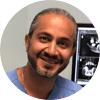 Written by jeff
Written by jeff